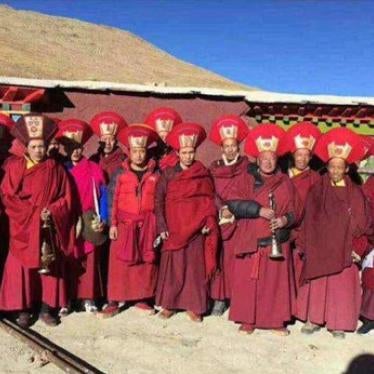(Washington) -- During his upcoming Beijing visit, U.S. President George W. Bush should reject Beijing's attempts to use the fight against terrorism to justify serious human rights abuses, Human Rights Watch said today. President Bush will make his first official visit to Beijing on February 21-22.
In a detailed background document, Human Rights Watch analyzed China's human rights record over the past year, including:
- a refurbished "Strike Hard" anti-crime campaign that circumvents legal safeguards for criminal suspects, as well as for alleged separatists and so-called religious extremists,
- tighter restrictions on free expression and the Internet,
- a continuing crackdown on Falun Gong, other "cults" and religious activities outside the official churches, and
- violations of key labor rights.
"China may offer another 'dialogue' meeting and the release of a few imprisoned political or religious activists," said Mike Jendrzejczyk, Washington Director of Human Rights Watch's Asia Division. "But President Bush should also get commitments from China's top leaders to take some more meaningful steps forward in human rights."
Human Rights Watch urged President Bush to repeat, in even stronger terms, his comments in Shanghai last October when he criticized China for justifying its abusive treatment of ethnic minorities on anti-terrorist grounds.
"Bush should publicly reject China's claim that its crackdown on peaceful expression of so-called 'separatist' views is part of the war against terrorism," said Jendrzejczyk. "He should urge China to open up Xinjiang and Tibet to regular, unrestricted visits by United Nations and independent human rights monitors."
Human Rights Watch called on Bush to urge President Jiang Zemin and Vice President Hu Jintao to fully implement the recommendations made by the United Nations Special Rapporteur on Religious Freedom following a visit to China in November 1994, and to invite the U.N. expert to return to China and Tibet to assess religious freedom.
Tens of thousands of Chinese citizens each year are sentenced administratively, without charge or trial, for up to three years of "reeducation through labor." The United Nations has condemned the system as inherently arbitrary. Human Rights Watch urged that in response to an offer of increased U.S. assistance and training in rule of law programs, Bush seek a concrete commitment from China to abolish reeducation through labor.
Human Rights Watch also suggested that the White House use the visit to schedule a trip to China later this year by the U.S. Secretary of Labor to offer U.S. assistance with social safety net and worker health and safety programs, as well as to begin a high-level dialogue on China's obligations to respect the basic rights of workers and migrants as a member of the International Labor Organization. Such a visit was suggested by China's labor minister when he came to Washington in March 1999, and with China's entry into the World Trade Organization, increasing unrest among laid off and unemployed workers is widely expected.
Former premier Li Peng, now head of the National People's Congress, warned in a letter published by Xinhua, the official news agency, on February 10, that China's leaders are "firmly opposed to interfering in other countries' internal affairs by using the human rights issue" and to "pursuing hegemony and power politics under the guise of human rights." But Li expressed an interest in carrying out "dialogues and exchanges" on human rights. The U.S. and China resumed a formal dialogue in Washington from October 9-11, 2001. The State Department pressed for the release of political and religious dissidents, and raised other issues. Another round of discussions may be announced in conjunction with Bush's trip.
"Without serious pressure, dialogue alone is unlikely to lead to substantial changes in China's human rights practices, or to the release of large numbers of prisoners," Jendrzejczyk said.
One way to increase the pressure would be to include members of Congress in Bush's delegation who could reinforce the importance of human rights in U.S.-China relations. In testimony before a newly-created Congressional-Executive Commission on China at its first hearing on February 7, 2002, Human Rights Watch suggested that some members of the Commission, which includes prominent senators and representatives, go with Bush in order to hold bilateral discussions with key ministries on human rights and rule of law concerns.






